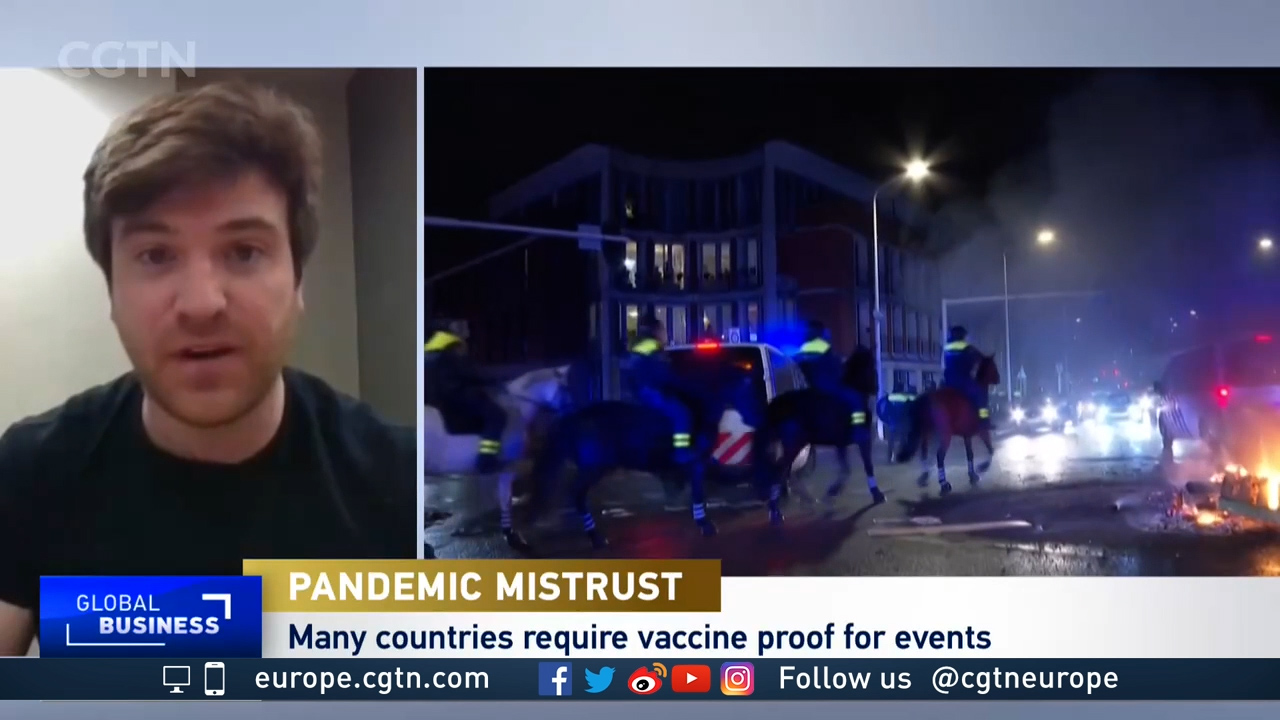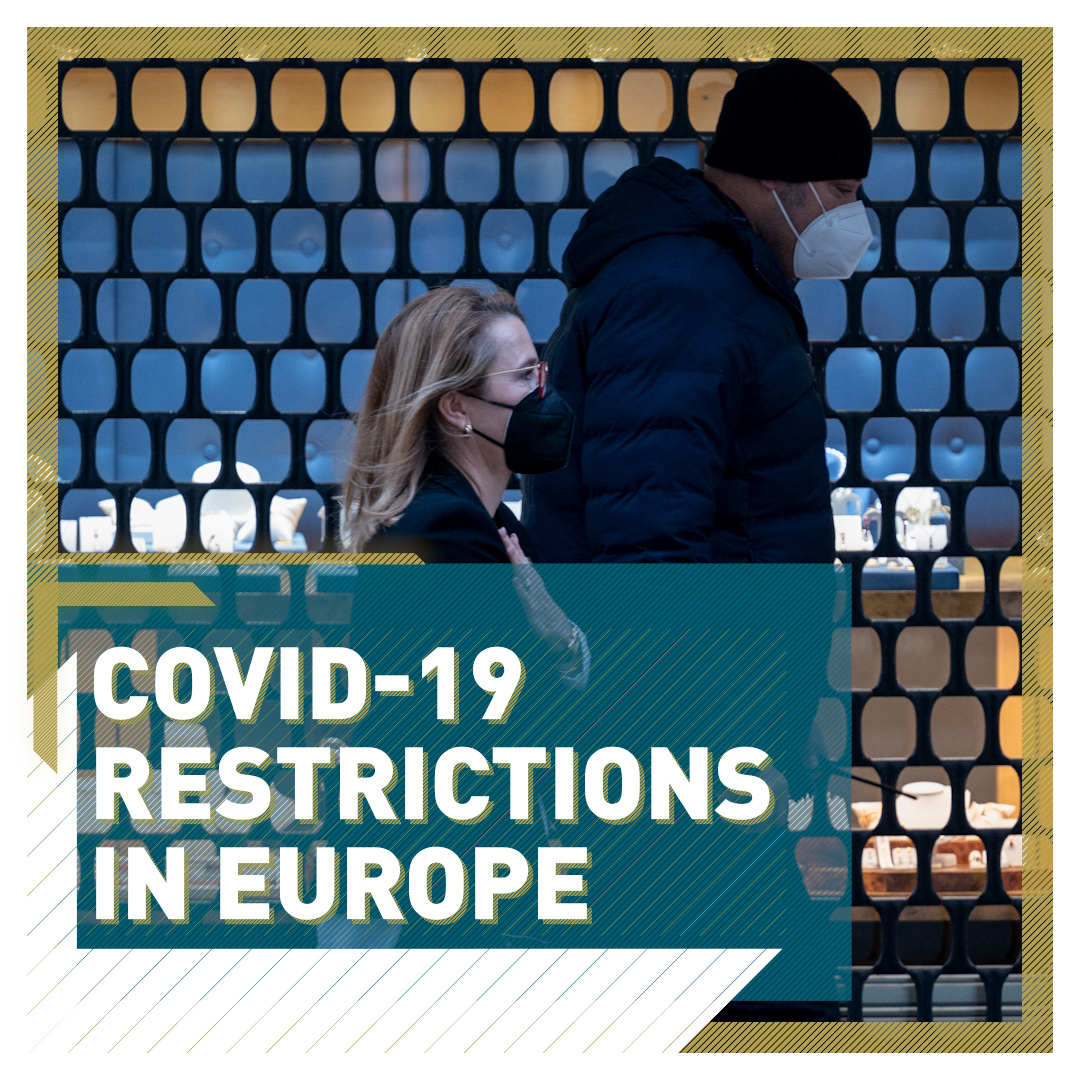03:56

About five to ten percent of the population of most European countries are vaccine resistant, according to an expert in conspiracy theories.
David Robert Grimes, the author of The Irrational Ape - Why We Fall for Disinformation, Conspiracy Theory and Propaganda, told CGTN: "There has always been an anti-vaccine movement.
"There are pamphlets from 1772 that are anti-vaccine. Vaccine hesitancy is a spectrum, so we often say anti-vaccine or pro-vaccine, but it usually is people being nudged one way or the other along a big spectrum.
"The problem with the current situation in Europe is that there is a hardcore vaccine-hesitant resistance, but a minority.
"It is very, very difficult to get them to change their position, and they are in many countries such as Ireland, my home country, they are actually driving infections to the rest of the population. So taking some measures to correct that is very much overdue."
02:02

Conspiracy theories allow the anti-vaccine core to drag other people in their wake, according to Grimes. That's hard to counter because we live in exceptional, scary times and social media caters to our excesses.
"We, as human beings, have a negativity bias. We react to things that are very scary or frightening, and we give them disproportionate weight. That makes it very easy for anti-vaccine activists to put out scary things on social media and catch other people with it," he said.
Vaccine mandates, he adds, are nothing new.
"They existed in the UK for a long time and the U.S.. They were challenged in the U.S. Supreme Court in 1905, and the U.S. Supreme Court ruled they were not a violation of freedom.
"So there is historical precedent for mandating people to get vaccination. It's just a shame that we have to go to such an extreme measure when you know, vaccination would break the back of this pandemic in a huge way."

